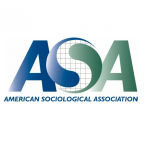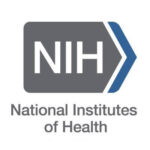CSDE Science Core: Upcoming Workshops
|
Each quarter, CSDE offers 3-5 workshops on data sources, statistical and biomarker methodology, introductions to analysis programs, and more, all given by CSDE staff and faculty affiliates. Check out the winter quarter offerings here!
(read more) |
 |
*New* DOJ Office on Violence Against Women Announces Research Grant Opportunity (LOIs due 2/7/25)
|
The Office on Violence Against Women (OVW) in the U.S. Department of Justice (DOJ) recently announced their Research and Evaluation (R&E) Initiative. The R&E Initiative is designed to study approaches to addressing and preventing domestic violence, sexual assault, dating violence, and stalking, so that communities benefiting from OVW grant funds will be better equipped to align their work with practices that are known to be effective.
(read more)
|
 |
*New* Royalty Research Fund Invites Proposals (3/5/25)
|
The Office of Research invites applications for the next round of the Royalty Research Fund (RRF) grant program. Proposals are due to RRF Monday, March 3, 2025 by 5:00 PM. Departments and Colleges/Schools may have earlier deadlines, so all applicants are advised to check with their program’s administrative staff. Awards will be announced by June 15, 2025.
The purpose of the RRF is to advance new directions in research, particularly:
- For faculty who are junior in rank.
- In cases where RRF funding may provide unique opportunities to increase applicants’ competitiveness for subsequent funding.
- In disciplines for which external funding opportunities are minimal.
(read more) |
 |
Apply for the Robert Wood Johnson Foundation Health Policy Scholars Program (3/11/25)
|
The RWJF Health Policy Research Scholars is a leadership development program for full-time doctoral students from historically marginalized backgrounds who can connect how their background, identity, or lived experiences have positioned them to contribute to the goals of the program, including bringing unique and diverse perspectives to their research. In 2025, HPRS is selecting up to 40 doctoral students who are beginning their second year in fall 2025 in a full-time doctoral program and do not expect to graduate before spring/summer 2028.
(read more) |
 |
Sign up to join the Early Career listserv!
|
We invite early career faculty affiliates to join our new mailing list, csde_earlycareer. Among other things, this is the way to find out info about our quarterly Early Career Affiliate happy hours, and you won’t want to miss those! These will be a great way to meet up with other junior scholars in a fun and casual atmosphere over snacks and drinks. Who counts as early career, you ask? Typically we mean folks who are pre-promotion (i.e. assistant professor or equivalent), but we're not strict! Join the list here (Please note - this is for faculty only - we are strict about that. Sorry, all others!)
(read more) |
 |
Register Now: PAA Applied Demography Conference
| Register now for the Applied Demography Conference (ADC) in Tucson, Arizona! From February 4 – 6, 2025, ADC will be at the stunning Loews Ventana Canyon. This conference is designed to showcase developments in applied demography, provide feedback on work in progress, and strengthen professional and personal ties within the applied demography community. Registration includes a continental breakfast each day and a group luncheon. See details and register here. (read more) |
 |
*New* Call for Submissions: 50th Annual Natural Hazards Research and Applications Workshop (1/31/25)
|
The 50th Annual Natural Hazards Research and Applications Workshop is currently accepting submissions related to this year’s theme, “The Next 50 Years: Charting a Course for the Hazards and Disaster Field.” The workshop also welcomes research that focuses on other pressing hazards or disaster topics. Please visit the online submission form to offer ideas for roundtables, concurrent sessions, trainings, TED-style talks, and more. You can also learn more about the workshop here.
(read more) |
 |
Office of Global Affairs Accepting Applications for the 2025 Global Innovation Fund (due 1/31/25)
|
Applications for the Office of Global Affairs’ Global Innovation Fund are now open. This grant opportunity is intended to develop cross-college and cross-continent research collaborations, with award opportunities from $3,000 to $20,000 available to support fellowships, research projects, study abroad/away and teaching. Learn more about the various opportunities here. Applications are due January 31, 2025.
(read more) |
 |
Call for Abstracts: Data-Intensive Research Conference (due 1/31/25)
|
Abstract submissions are now open for the 2025 Data-Intensive Research Conference. The 2025 conference theme is Understanding Health and Population Dynamics through Big Microdata. We seek submissions that use full count census data to examine health and population dynamics. We are particularly interested in projects that link persons, families, or communities across censuses or link full count data to other sources, including the creation of place-based measures or person-level linkages to external data.
(read more) |
 |
Call for Abstracts: Workshop on the Integration Paradox (due 2/1/2025)
|
Empirical evidence shows that many migrants who are seemingly well “integrated” actually do not feel at home, report more discrimination and experience a weaker sense of belonging to their residence country than seemingly less integrated migrants. The literature on the integration paradox (IP) has expanded significantly in recent years, but it still falls short on longitudinal perspectives and empirical evidence on the underlying mechanisms and scope of countries and migrant groups studied. The International Union for the Scientific Study of Population (IUSSP) recently announced a research workshop at Utrecht University (Netherlands) on this subject.
(read more) |
 |
Call for Papers: Gender & Society Special Issue – Feminist Metascience, Feminist Open Science? Pain Points and Possibilities (Due 2/1/25)
|
Call for papers: Gender & Society Special Issue — Feminist Metascience, Feminist Open Science? Pain Points and Possibilities, due by Feb 1st, 2025.
Guest Editors: Christin L. Munsch (University of Connecticut) and Daisy Verduzco Reyes (UC-Merced)
This special issue explores the relationship between feminism, metascience, and open science, seemingly disparate areas of inquiry of contemporary significance. This special issue will be a forum for feminist scholars to explore these relationships.
(read more) |
 |
NSF Call for Proposals: Human-Environment and Geographical Sciences Program (Proposal Target Date 2/3/25)
|
The NSF’s Human-Environment and Geographical Sciences Program reissued its call for proposals. The call invites senior research proposals, early career development proposals, research coordination network proposals, conference and research community development activities, research experiences for undergraduates and graduates, and transdisciplinary research in environmental social science.
(read more) |
 |
RSF Dissertation Research Grants (due 2/4/25)
eScience Winter School: Data Science Tools (beginning 2/6/25)
|
The eScience Institute’s Winter School offers the opportunity to gain literacy in topics such as Python, R, Jupyter, and reproducible environments. This is an in-person, 4-session series starting Thursday, February 6th. Learn more and apply here.
(read more) |
 |
UW Latino Center for Health Announces Small Grant Program (due 2/10/25)
|
The UW Latino Center for Health recently announced their Small Grant Program, a $25,000 grant to fund research focused on Latinx health in Washington state. Applicants should include a partnership between a UW faculty investigator and a community-based organization that serves Latinx individuals, families, or communities.
Each grant award is up to $25,000 and does not include indirect costs. The deadline for submission is February 10, 2025. Funds will be awarded in May 2025 for up to a one-year project with a community partner.
(read more) |
 |
eScience Institute Data Science & AI Accelerator
|
The eScience Institute’s accelerator program is looking for projects from any field that would benefit from collaboration on data intensive and AI approaches, such as machine learning, scalable data management, statistical analysis, data visualization, open-source software development, and cloud and scalable computing. To be considered for spring quarter, submit a proposal by February 6th. Learn more and sign up for an info session on January 23rd here.
(read more) |
 |
Call for Research Proposals: Understanding the School Food Workforce Subgrants (due 2/14/25)
|
The U.S. Department of Agriculture Food and Nutrition Service, the University of Wisconsin-Madison, Food Insight Group, and Chef Ann Foundation recently announced a Request for Research Proposals entitled “Understanding the School Food Workforce Subgrants.” The group is looking for research projects that will increase understanding of the current state of the K-12 school food workforce in the United States and/or explore strategies to create a stable and respected workforce that can provide healthy meals to students while supporting resilient local and regional food systems.
(read more) |
 |
Statistical Horizons Course on How to Choose a Model for Longitudinal Data (2/20 – 2/22/25)
|
With a seemingly endless range of possible models to analyze longitudinal data, how do you select the best one? This seminar from Statistical Horizons (taught by Kenneth A. Bollen) will address that question, providing you with practical tools to evaluate and select the most suitable longitudinal model. Learn more and access sample course materials here.
(read more) |
 |
RSF Letters of Inquiry (Due 3/11/25)
RSF Call for Proposals from Early-Career Scholars – Causal Research on Criminal Justice System (Due 4/3/25)
|
The Russell Sage Foundation (RSF) and Arnold Ventures recently announced a collaborative call for causal research on the criminal justice system. Criminal justice policies and practices include the work of the police, courts, jails, prisons, probation and parole, and immigration detention. Proposals must include causal research designs that can reliably isolate the treatment effects of a policy, practice, or intervention such as difference-in-differences, regression discontinuity, instrumental variables, and randomized controlled trials.
(read more) |
 |
Updating the Definition of Sexual and Gender Minority Populations in NIH-Supported Research
|
Statistics indicate that as of 2024, nearly eight percent of the U.S. population identifies as LGBT, with much of this growth attributed to increases in LGBT identification among younger generations. In recent years, policies and laws have been enacted in support of LGBTQI+ communities and their well-being. For example, the 21st Century Cures Act included provisions for the NIH Director to encourage efforts to improve research related to the health of sexual and gender minority (SGM) populations, including to increase participation of SGM populations in NIH-supported clinical research and to facilitate the development of methods for conducting SGM research. SGM people were designated as a population with health disparities for NIH research in 2016 by the Director of the National Institute on Minority Health and Health Disparities in consultation with the Director of the Agency for Healthcare Research and Quality. The NIH SGM health research portfolio has steadily grown and diversified since 2015.
However, members of SGM communities still face unique and significant disparities and barriers across domains such as physical, mental, and behavioral health; social and structural determinants of health; and healthcare access and quality. This includes higher SGM group-specific rates of and risks for some chronic health conditions (e.g., arthritis, asthma, cardiovascular disease, diabetes, certain forms of cancer, and HIV/AIDS), depression, anxiety, eating disorders, substance use, smoking, stigma, discrimination, bullying, using preventive health services less frequently, and negative experiences in healthcare settings.
(read more) |
 |
CSDE Population Research Planning Grants (PRPGs) (Rolling deadline)
|
Population Research Planning Grants (PRPGs) are designed to provide in-kind support and/or funds of up to $25k* to support a wide array of activity types throughout the development of a research project. As part of our mission to complement rather than duplicate other campus opportunities such as the Population Health Initiative seed grants, we will consider funding things activities such as the use of CSDE services beyond the standard allotments for affiliates.
(read more) |
 |
CSDE Matching Support to Supplement On-campus Funding (Rolling deadline)
|
CSDE Matching Support includes in-kind or monetary support to accompany a submission to other on-campus funding mechanism, such as PHI, EarthLab, or Urban@UW. All projects must have a CSDE affiliate who is UW faculty and is listed as a PI or co-PI, with any number of other collaborators. Note that we require (PRPGs) or strongly suggest (matching funds) contacting either Development Core Director (Steven Goodreau) or CSDE Director (Sara Curran) to discuss possibilities for your specific proposal before submission.
(read more) |
 |
NSF: Proposals Impacting Tribal Nation Resources & Interests
|
As of 5/20/2024, NSF proposals that may impact the resources or interests of a federally recognized Tribal Nation will not be awarded by NSF without prior written approval from the official(s) designated by the relevant Tribal Nation(s).
Proposers must:
- Seek guidance from the potentially impacted Tribal Nation on activities that require review and prior approval from that Tribal Nation’s authorized designee.
- Submit a written request to the relevant Tribal Nation (based on their guidance), for approval to carry out the proposed activity that requires their review and approval.
- Complete the checkbox for “Potential Impacts on Tribal Nations” on the Cover Sheet. Note, lead organizations are responsible for this on collaborative proposals & proposals with subawards considered a single unified project.
- Upload one of the following into "Other supplementary documents" of Research.gov:
- a copy of the written request to the relevant Tribal Nation to carry out any proposed activity/activities that may require prior approval from them
- written confirmation from the Tribal Nation(s) that review and approval is not required
- a copy of relevant Tribal Nation approval
(read more) |
 |
Overview of Grant Application and Review Changes for Due Dates on or after January 25, 2025
|
This notice provides the research and research training community an overview of application and peer review changes impacting grant applications submitted for due dates on or after January 25, 2025, including:
- Simplified Review Framework for Most Research Project Grant Applications
- Revisions to the NIH Fellowship Application and Review Process
- Updates to Reference Letter Guidance
- Updates to NRSA Training Grant Applications
- Updated Application Forms (FORMS-I)
- Common Forms for Biographical Sketch and Current and Pending (Other) Support
Although each of these initiatives has specific goals, they are all meant to simplify, clarify, and/or promote greater fairness towards a level playing field for applicants throughout the application and review processes.
(read more) |
 |
|
|

